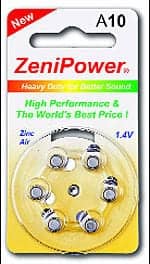Cochlear implant maker MED-EL Corporation has received FDA approval for its new FLEX24 and FLEX28™ electrode arrays, which offer surgeons additional options for atraumatic insertion and may help them to preserve the delicate structures in the cochlea.
The FLEX electrode design incorporates FLEX-Tip™ technology and MED-EL’s proprietary wave-shaped wires. The two new arrays feature paired electrode contacts for the seven basal channels and single electrode contacts for the five apical channels.
The company says that this design creates an electrode that is narrower, tapered, and more flexible on the apical end to better match the shape of most cochleae. As a result, the design provides a better chance to preserve the integrity of neural tissue targeted for electrical stimulation, according to the company’s press release.
Richard Collette, president and CEO, MED-EL Corporation USA, explained the importance of preserving neural tissue. He said, “With today’s rapidly changing technology, it’s much more likely that patients will have more than one electrode insertion over their lifetime. A child implanted today will hopefully still be benefiting from cochlear implants or other innovative hearing implant technologies and treatments 80 years from now. So, patients and surgeons want to consider electrodes that are as gentle to insert and extract as possible.”
He added that technologies being researched today, including stem cell treatments, genetic treatments, optical stimulation, and drug delivery, will likely benefit from intact cell structures. “We want to do all we can to help preserve that future potential for our patients, while still providing an opportunity to take advantage of all that our current cochlear implants have to offer,” he continued.
Offered in two lengths, 28mm or 24mm, the arrays also feature ultra-flexible wave-shaped wires, designed to significantly reduce rigidity in comparison to a straight-wire design. In addition to the new FLEX options, MED-EL will continue to offer its Standard, Medium, and Compressed electrode arrays.
MED-EL said that the two new designs would be available to US surgeons in the near future, but did not give a specific date.
SOURCE: MED-EL




